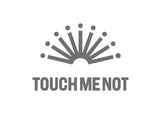ORGANIC FABRICS
There are several different certifications in today’s textile and clothing industry (Oeko-Tex, Fair Wear), but these are usually focusing on only one important issue, such as harmful chemicals or human factor and working standards and conditions, while the GOTS certification is a complex system, which examines and monitors not only the production of the fabrics but even vendors & retailers.
The GOTS certification covers all important fields at the same time which guarantees, that the fibers of the fabrics we are using, are all coming from sustainable sources and during the manufacturing process all ecological, environmental and human requirements and standards were fulfilled.
KEY CRITERIA FOR FIBRE PRODUCTION
- Organic certification of fibres on basis of recognised international or national standards (IFOAM family of standards, EEC 834/2007, USDA NOP)
- Certification of fibres from conversion period is possible if the applicable farming standard permits such certification
- A textile product carrying the GOTS label grade ‘organic’ must contain a minimum of 95% certified organic fibres whereas a product with the label grade ‘made with organic’ must contain a minimum of 70% certified organic fibres
KEY ENVIRONMENTAL CRITERIA
FOR PROCESSING AND MANUFACTURING
- At all stages through the processing organic fibre products must be separated from conventional fibre products and must to be clearly identified
- All chemical inputs (e.g. dyes, auxiliaries and process chemicals) must be evaluated and meeting basic requirements on toxicity and biodegradability/eliminability
- Prohibition of critical inputs such as toxic heavy metals, formaldehyde, aromatic solvents, functional nano particles, genetically modified organisms (GMO) and their enzymes
- The use of synthetic sizing agents is restricted; knitting and weaving oils must not contain heavy metals
- Bleaches must be based on oxygen (no chlorine bleaching)
- Azo dyes that release carcinogenic amine compounds are prohibited
- Discharge printing methods using aromatic solvents and plastisol printing methods using phthalates and PVC are prohibited
- Restrictions for accessories (e.g. no PVC, nickel or chrome permitted)
- All operators must have an environmental policy including target goals and procedures to minimise waste and discharges
- Wet processing units must keep full records of the use of chemicals, energy, water consumption and waste water treatment, including the disposal of sludge. The waste water from all wet processing units must be treated in a functional waste water treatment plant.
- Packaging material must not contain PVC. Paper or cardboard used in packaging material, hang tags, swing tags etc. must be recycled or certified according to FSC or PEFC
KEY TECHNICAL QUALITY AND HUMAN TOXICITY CRITERIA
FOR PROCESSING AND MANUFACTURING
- Technical quality parameters must be met (s.a. rubbing, perspiration, light and washing fastness and shrinkage values)
- Raw materials, intermediates, final textile products as well as accessories must meet stringent limits regarding unwanted residues
KEY SOCIAL CRITERIA
FOR PROCESSING AND MANUFACTURING
Social criteria based on the key norms of the International Labour Organisation (ILO) must be met by all processors and manufacturers. They must have a social compliance management with defined elements in place to ensure that the social criteria can be met. For adequate implementation and assessment of the following social criteria topics the listed applicable key conventions of the International Labour Organization (ILO) have to be taken as the relevant basis for interpretation.
- Employment is freely chosen
C29 – Forced Labour Convention
C105 – Abolition of Forced Labour Convention
- Freedom of association and the right to collective bargaining are respected
C87 – Freedom of Association and Protection of the Right to Organise Convention
C98 – Right to Organise and Collective Bargaining Convention
C135 – Workers’ Representatives Convention
C154 – Collective Bargaining Convention
- Working conditions are safe and hygienic
C155 – Occupational Safety and Health Convention
- Child labour must not be used
C138 – Minimum Age Convention
C182 – Worst Forms of Child Labour Convention
- Living wages
C95 – Protection of Wages Convention
C131 – Minimum Wage Fixing Convention
- Working hours are not excessive
C1 – Hours of Work (Industry) Convention
C14 – Weekly Rest (Industry) Convention
C30 – Hours of Work (Commerce and Offices) Convention
C106 – Weekly Rest (Commerce and Offices) Convention
- No discrimination is practised
C100 – Equal Remuneration Convention
C111 – Discrimination (Employment and Occupation) Convention
- Regular employment is provided
C158: Termination of Employment Convention
C175: Part-time Work Convention
C177: Homework Convention
C181 Private Employment Agencies Convention
- Harsh or inhumane treatment is prohibited
C29 – Forced Labour Convention
C105 – Abolition of Forced Labour Convention
For more info and the whole detailed list please visit www.global-standard.org.
CHECK OUT OUR SUPPLIERS' ACTUAL CERTIFICATION HERE
